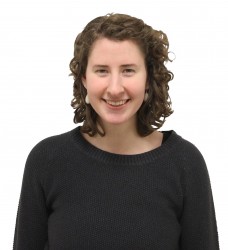 Growing up, I had a number of older and wiser mentors to advise me. From teachers who helped out with recommendations and college prep to older siblings who taught me how to lie to our parents without them finding out, these people had more life knowledge than me. They had already been there, done that.
Growing up, I had a number of older and wiser mentors to advise me. From teachers who helped out with recommendations and college prep to older siblings who taught me how to lie to our parents without them finding out, these people had more life knowledge than me. They had already been there, done that.
In college, most of us have older current or former student friends who have some interesting insights. We also have academic advisors who focus on our class standings and what’s next immediately after graduation.
While these are great sources of information, sometimes the element of long-term life outside of school seems left out of these conversations. Professors and other students offer some great advice, but there is more to be found out from alumni in the professional world.
This year I was chosen as a participant in the Marquette University Alumni Association’s Pilot Mentoring program. It was a great way to receive some outside information from someone who had gone through Marquette and came out on the other side to some success. Starting small, mentees were chosen based on their majors and matched with an alum volunteer of the same majors and interests. With a few guidelines and suggested topics, the relationship was really open to what the mentee and mentor agreed upon.
Mentors can do more than advise on academics: they can bring life experience outside of Marquette to the table.
My mentor was a ’99 graduate with a psychology major and a philosophy minor who works for a consulting firm in information technology. While I have very little interest in going into that industry, I was able to work with my mentor on what my plans were for after graduation, interview preparation, resume skills and whatever else struck me the week of our meeting. Our relationship wasn’t just about what I kind of job I wanted or my academic career, but it was based more on my life and where different options could lead me.
I’ve been to Career Services before to talk about life after graduation, but the focus was on my career, funny enough. Working with an alumnus as my mentor made life after Marquette more of a reality. It wasn’t as scary, because I could talk to someone who had found success in that reality.
Mentoring programs should be encouraged by the university to strengthen both the experiences of current students and the relationship alumni have with the university. My program was through the alumni association and limited to how many people could participate from specific majors. The hope is that when it continues next year, it will be open to more students and alumni. Current and former students should take advantage of interacting with each other to solidify the bonds between the past and the present at Marquette.
I had a great experience with my mentor, and I hope that others can reap the benefits that come from working with someone who has been in a similar situation as you. Interests may vary (I can hardly get my new computer click pad to work correctly), but a true connection comes from the shared experience of attending Marquette.
I plan to stay in contact with my mentor and, maybe once I am an alumna, I will be a mentor to some bewildered philosophy student. If all goes well, I’ll be able to show him or her there is some hope for us critical thinkers in life after graduation.


